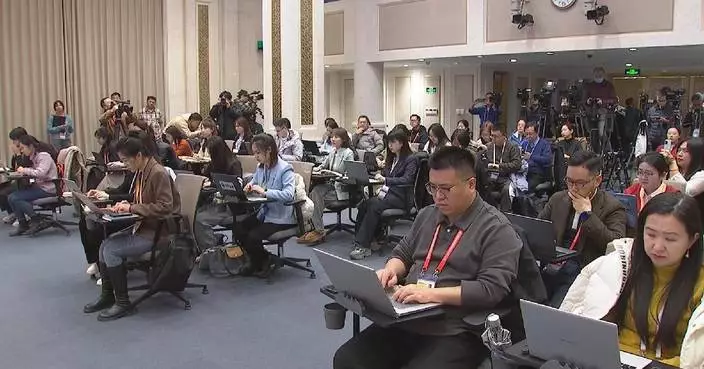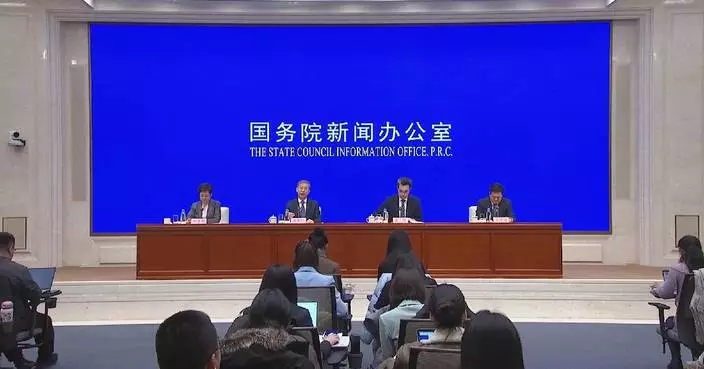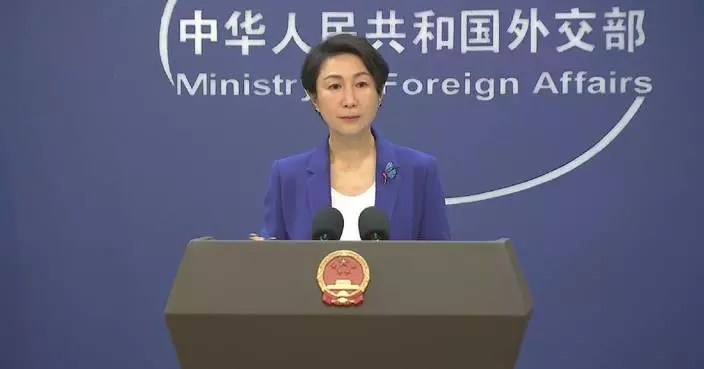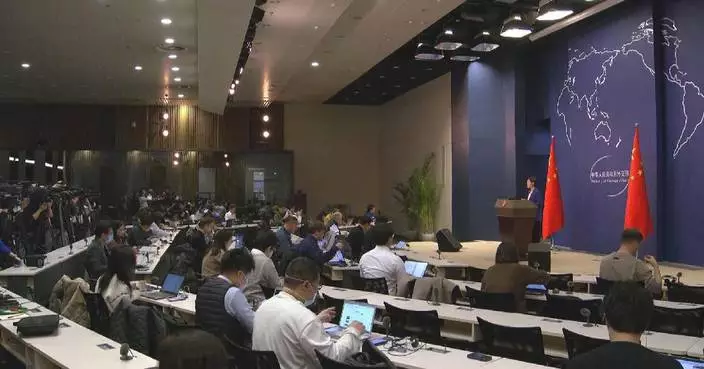China's individual income tax cuts exceeded 70 billion yuan in 2023, greatly reduced the burden on its residents, while foreign trade and inbound tourism showed positive signs in the first eight months of this year, according to the latest data from the State Taxation Administration on Friday.
China has raised the bar of special additional deductions for individual income tax, covering children nursing expenses, children's education, and elderly care expenses, to further benefit its people and improve their livelihoods.
"About 67 million taxpayers nationwide have benefited from an increase in special additional deductions for individual income tax. The total individual income tax reduction surpassed 70 billion yuan (about 9.93 billion U.S. dollars) in 2023, including 36 billion yuan, 29 billion yuan and 5 billion yuan, respectively, for children's education, elderly care, and nursing expenses for infants under three years old," said Shen Xinguo, director of the administration's department of tax service.
The taxation data also indicated enhanced resilience of China's foreign trade and a boom in inbound tourism.
"From January to August, the direct export tax refunds handled by taxation departments nationwide for enterprises were up 10.1 percent year on year, showing the resilience and fast growth of export enterprises. Meanwhile, tax refunds for the goods bought by overseas travelers increased by 1.5 times, showing soaring popularity of China travel among overseas visitors," said Huang Yun, director of the general office at the State Taxation Administration.
Chinese border ports saw a whopping 110 million inbound and outbound trips in July and August this year, averaging nearly 1.78 million per day, the country's National Immigration Administration said in early September.
A total of 10.89 million trips were made by overseas travelers, marking a 52.8-percent rise from last year.
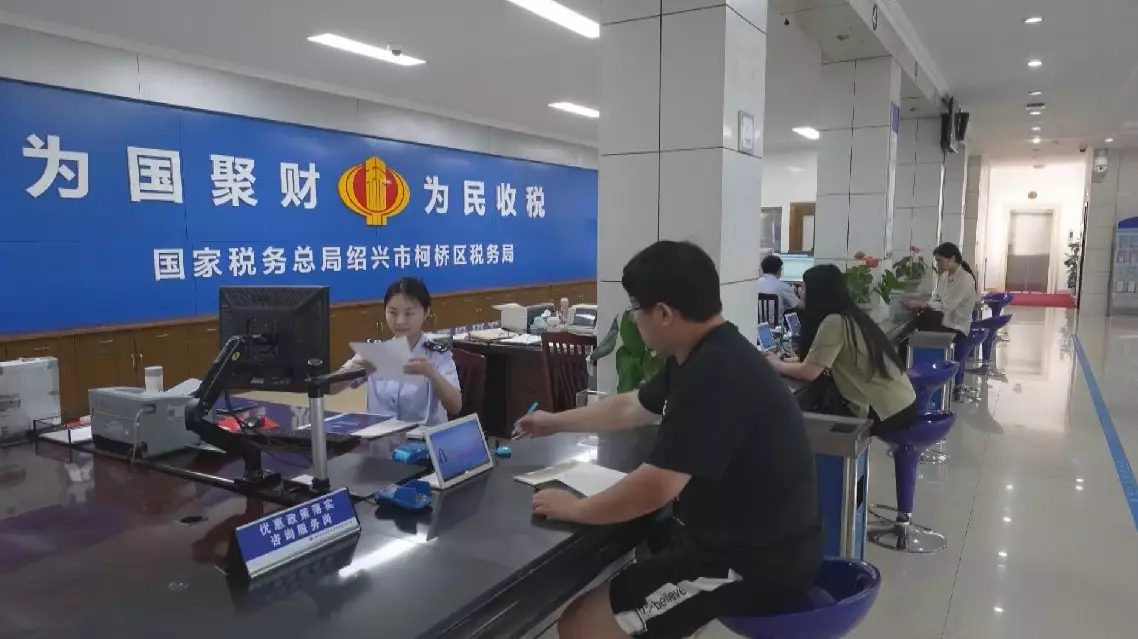
China's individual income tax cuts exceed 70 billion yuan in 2023: data
China remains resolute in its pursuit of the dual-carbon goals of carbon peaking and carbon neutrality, positioning the green transition as a core driver of high-quality development, according to Zhao Chenxin, vice chairman of the National Development and Reform Commission.
Speaking at a press conference on Friday in Beijing, Zhao outlined significant achievements in 2024 and provided a roadmap for 2025, which includes advancing carbon reduction initiatives, strengthening green industries, and enhancing ecological protection efforts.
"We've rolled out guidelines for accelerating the green transformation of our economy and society and advancing nearly 200 specific initiatives. We've also released a catalog of industries supporting this transition, promoting 112 green technologies and 47 advanced low-carbon projects. We've developed a two-year action plan for energy conservation and carbon reduction, along with seven sector-specific plans, achieving significant progress. It is predicted that we reduced energy consumption intensity by over 3 percent last year, surpassing our targets. Additionally, we’ve implemented 194 national standards in the 'dual-carbon' field and supporting local governments in establishing carbon emission budget systems," Zhao said.
Zhao also emphasized that efforts in resource conservation and ecological protection continued to gain momentum.
"We've rolled out policies on promoting food conservation, reducing food waste, developing water-saving industries, and encouraging waste recycling. More than 60 billion yuan (about 8.2 billion U.S. dollars) of government funding has been allocated to enhance environmental infrastructure and support major ecosystem protection and restoration projects, including the 'Three-North Shelterbelt Forest Program'. Additionally, we've formulated the Ecological Protection Compensation Regulations, and increased the annual funding of central and local governments to nearly 300 billion yuan (over 41 billion U.S. dollars)," Zhao added.
In addition, significant attention was given to programs aimed at large-scale equipment upgrades and consumer goods trade-ins.
"In 2024, we allocated 300 billion yuan in ultra-long-term special treasury bonds to support large-scale equipment upgrades and consumer goods trade-in programs. In the first 11 months of the year, national investment in equipment and tool procurement rose 15.8 percent year on year, contributing 65.3 percent to overall investment growth. Through the trade-in program, over 60 percent of consumers chose new energy vehicles, driving the domestic penetration rate of new energy passenger cars to over 50 percent for six consecutive months," Zhao explained.
Looking ahead, China will mark two major milestones in 2025 - the 20th anniversary of Chinese President Xi Jinping introducing the concept that 'lucid waters and lush mountains are invaluable assets,' and the fifth year since China announced its dual-carbon goals.
Zhao said that the commission will continue to work with relevant stakeholders and prioritize these efforts by advancing carbon reduction, pollution control, green growth, and ecological expansion, while accelerating the comprehensive green transformation of the economy and society.
"We will actively plan the carbon peaking initiatives for the 15th Five-Year Plan (2026-2030), develop integrated evaluation and assessment methods, advance national carbon peaking pilot projects, and accelerate the building of zero-carbon industrial parks. We will further strengthen fiscal, financial, investment, and pricing policies and standards to foster the healthy development of green and low-carbon industries," Zhao stated.
"We will continue to enhance environmental infrastructure, implement major ecosystem protection and restoration projects, and explore mechanisms to realize the value of ecological products. We will work to achieve greater results in promoting the programs of large-scale equipment upgrades and consumer goods trade-in, so as to increase funding, broaden coverage, optimize the implementation of the policies, and amplify their leverage effects in 2025," Zhao concluded.
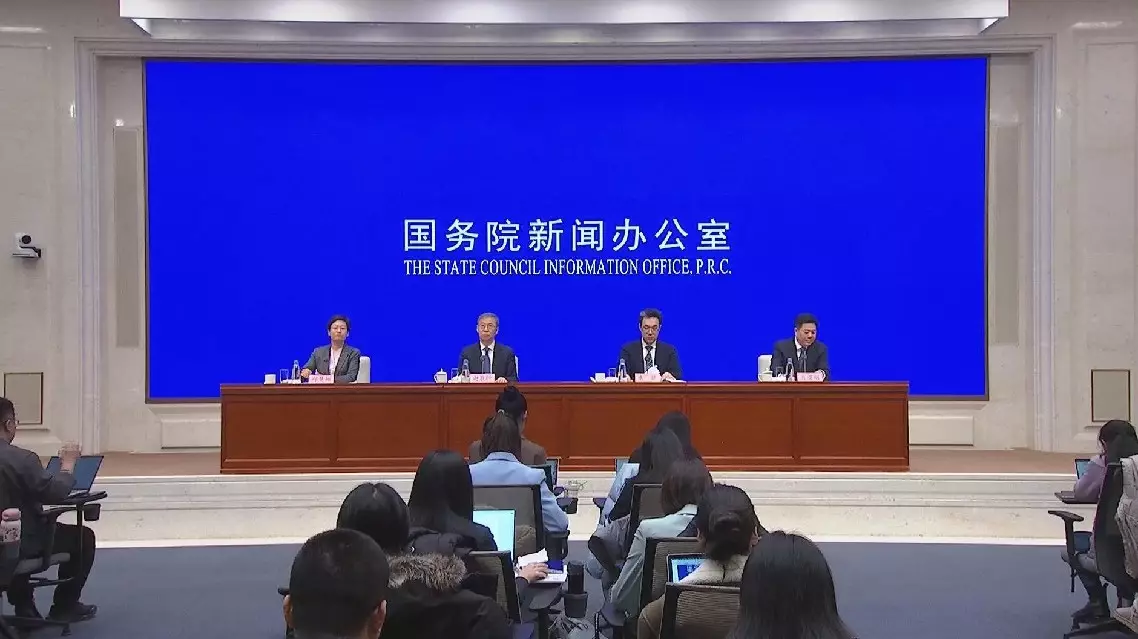
China reaffirms commitment to green transition and dual-carbon goals: NDRC






